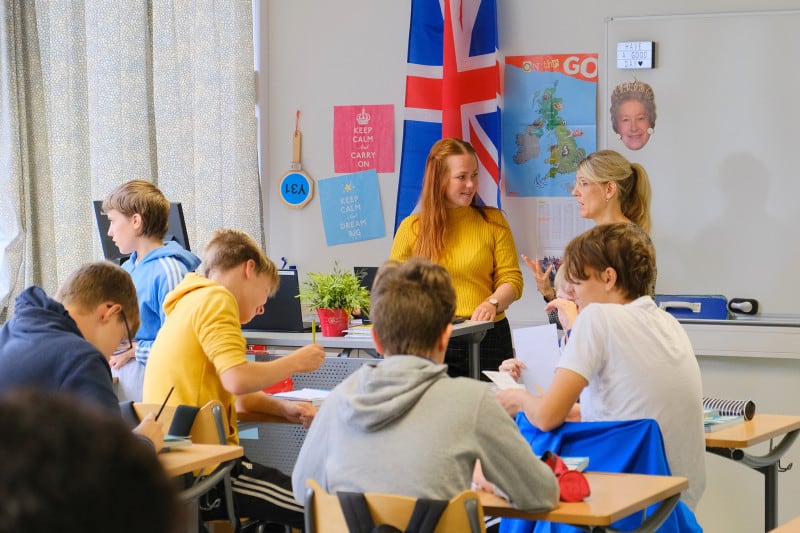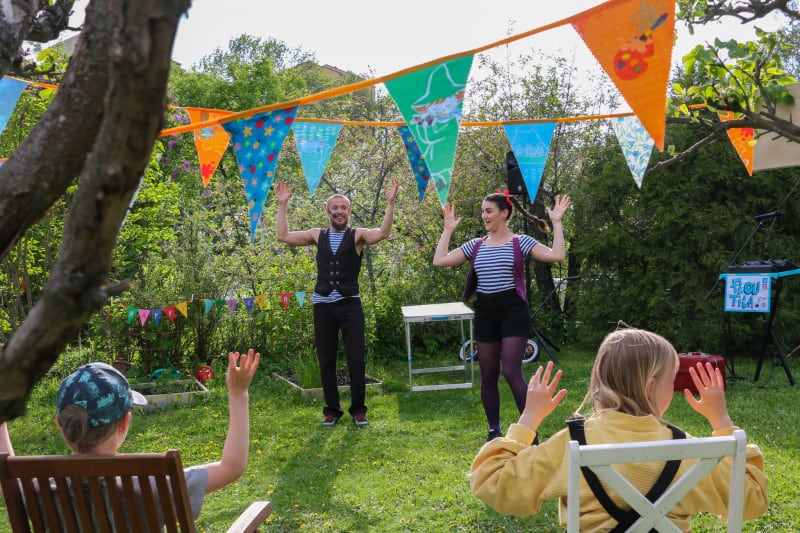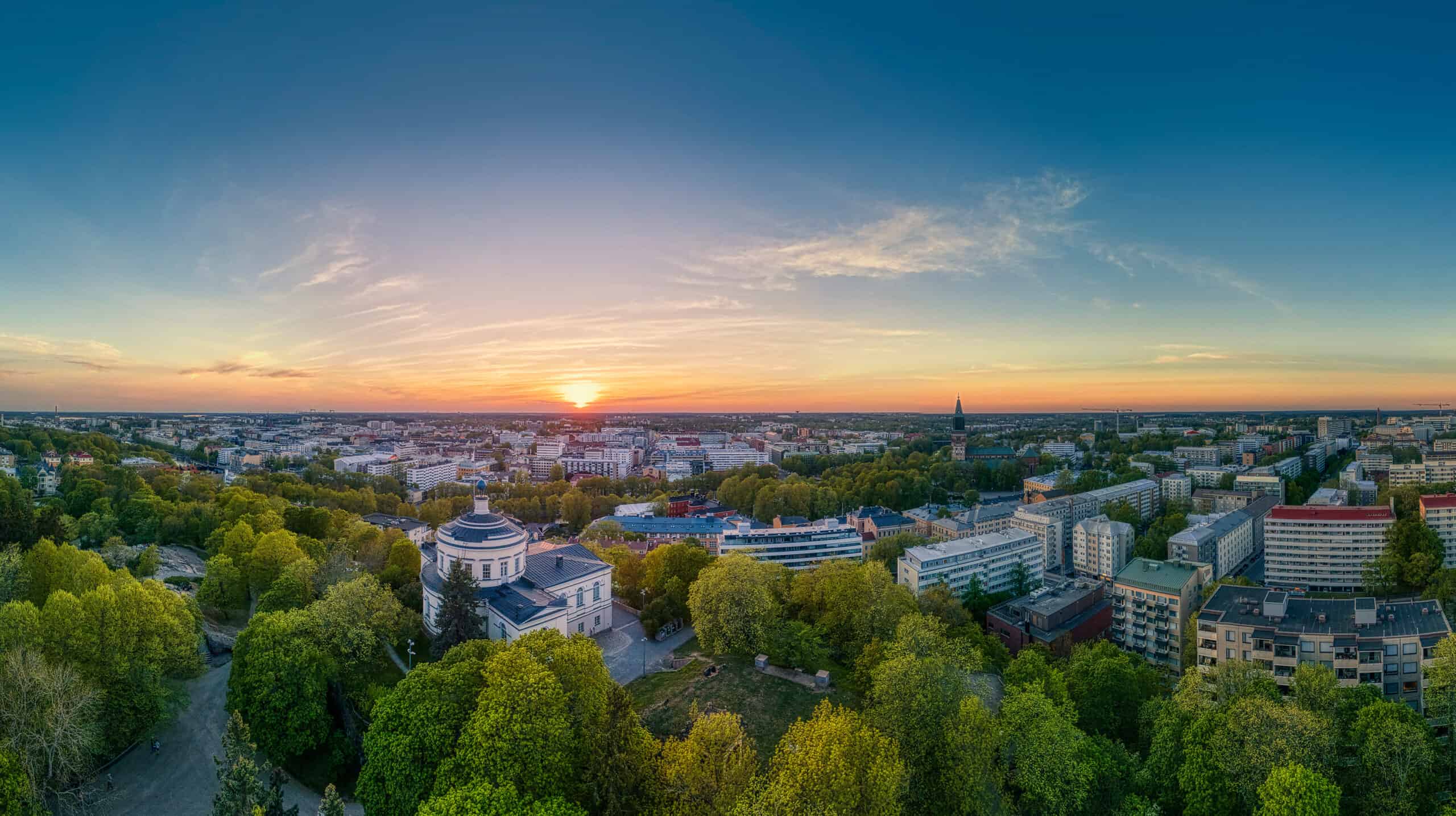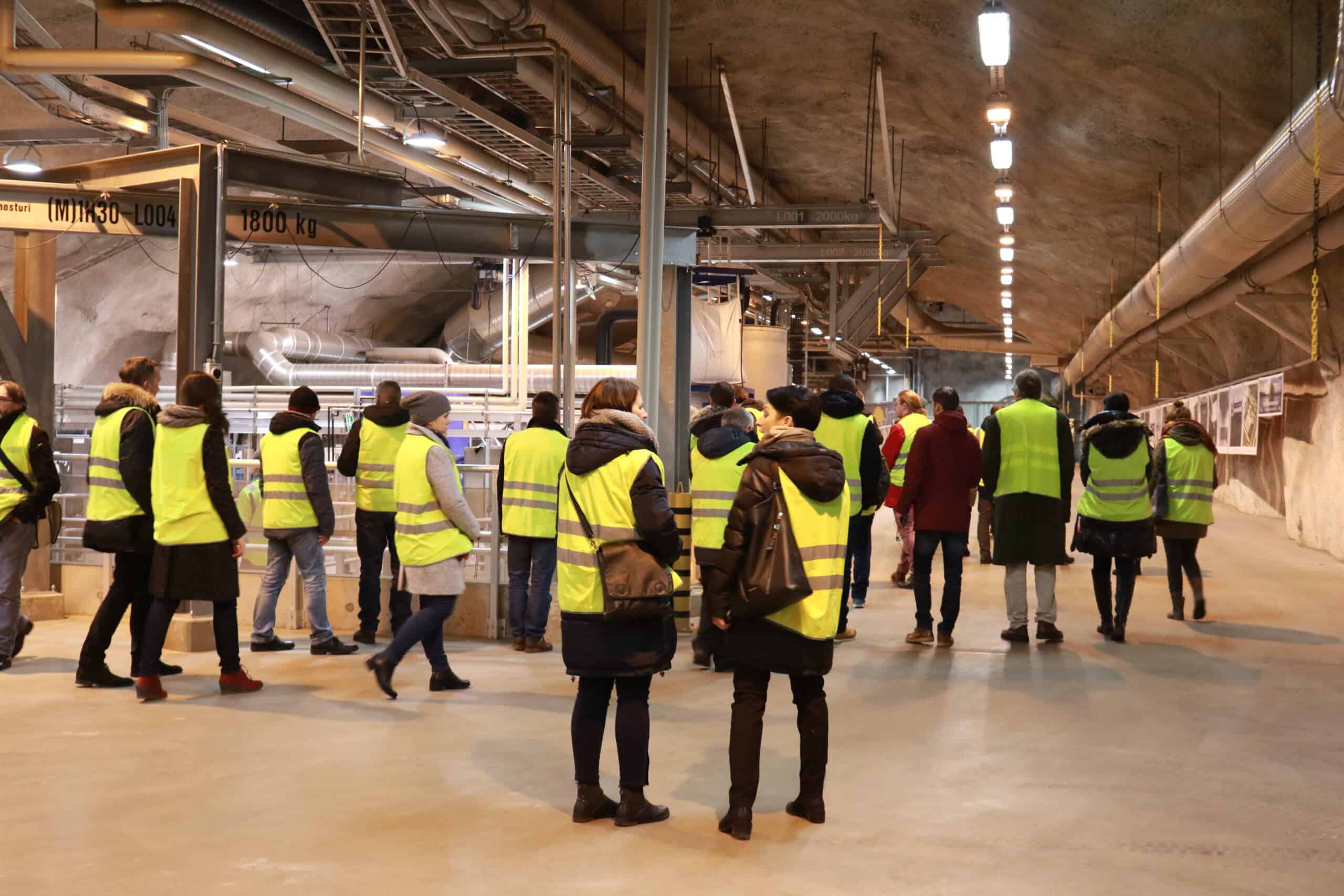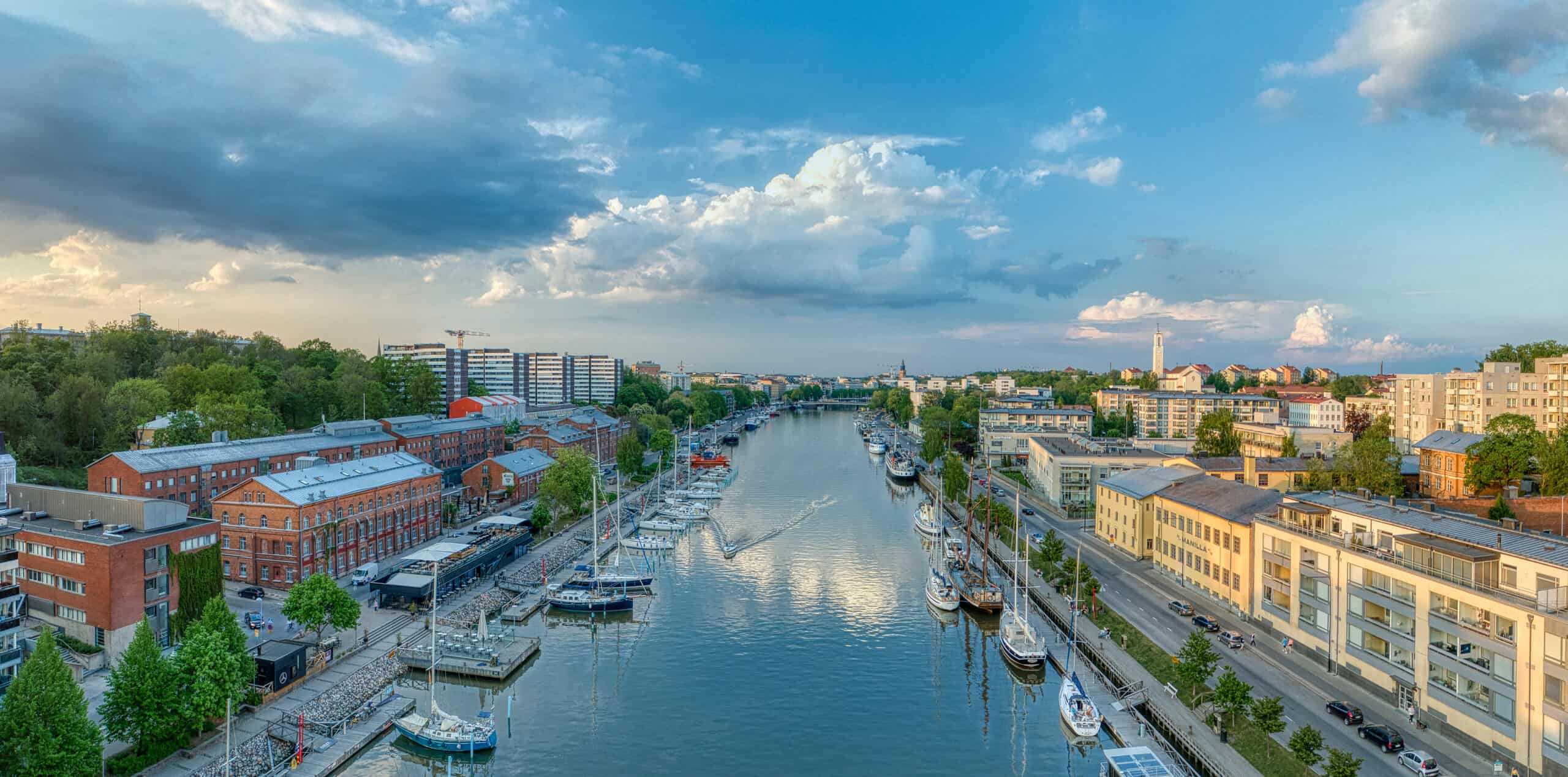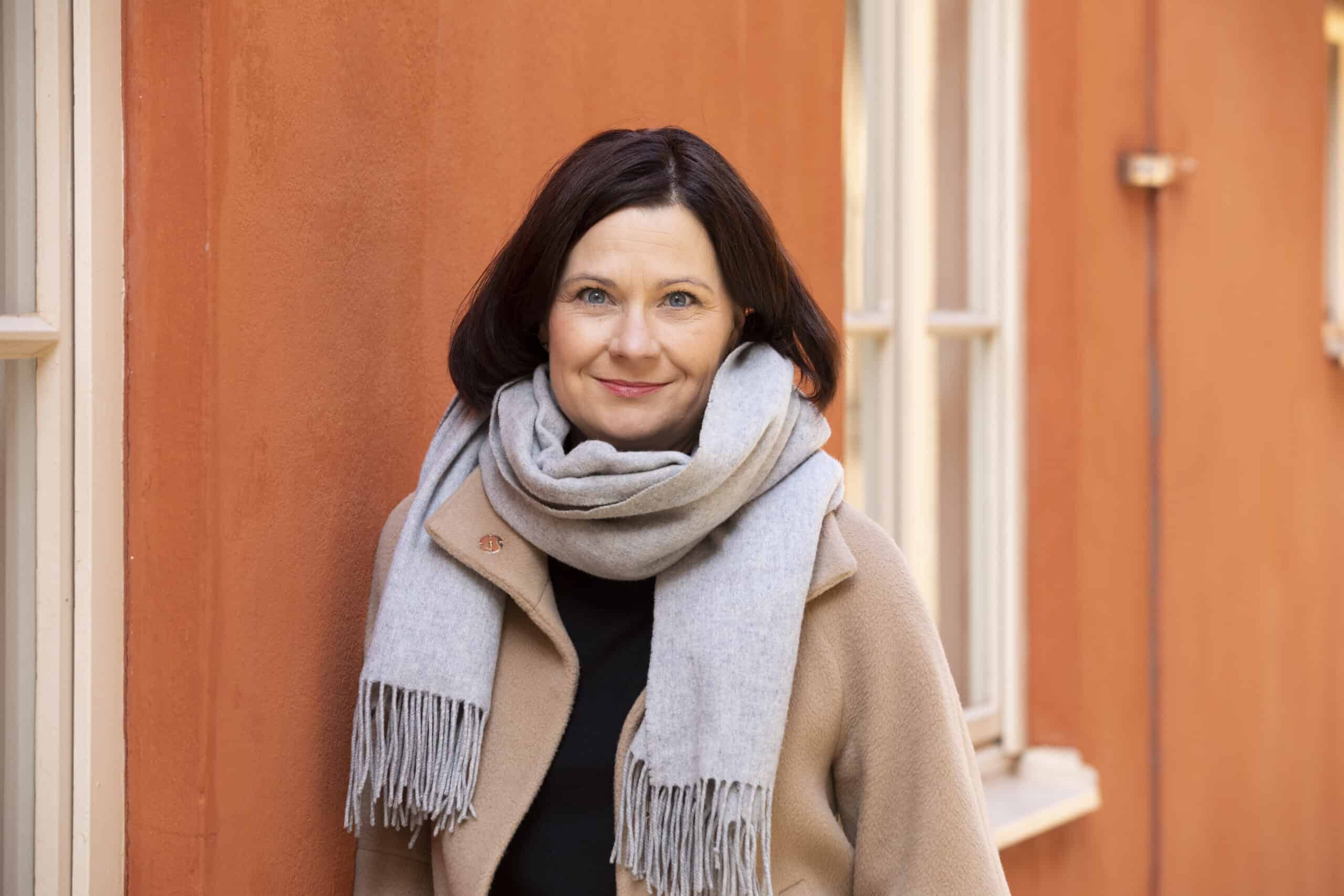
16 March 2022
“Working together is a cost-efficient way to develop and make improvements.”
Interview with Mayor of Turku, Minna Arve.
Written by Luca Arfini
Minna Arve, Mayor of the Finnish city of Turku, shares her views on what the city achieved by joining transnational projects funded by Interreg Baltic Sea Region. She explains how cooperating with partners from different European countries helped the city and its residents to move towards a healthier and greener future.
The city of Turku is one of the municipalities across the Baltic Sea that actively makes use of transnational cooperation for the benefit of its citizens. In the years 2014-2020, Turku worked on advancing solutions on green mobility, sustainable water management and well-being.
#DidYouKnow
Turku took part in seven Interreg projects: BaltCityPrevention, For Better Health, BSR WATER, HAZARD, Healthy Boost, HUPMOBILE and IWAMA.
How have Turku and its citizens benefited from transnational cooperation projects?
For the city of Turku, it is important to be active in the international arena. We are involved in several international networks and organisations in the Baltic Sea region, Europe and globally.
Via these networks, we have also joined several transnational cooperation projects, including Interreg projects. Working across borders with other partners from the region and beyond is essential to improve the attractiveness and living conditions in Turku.
Thanks to Interreg we managed to bring forward smart solutions that contributed to making urban transport more sustainable, enhancing water management coordination locally and promoting a healthy lifestyle among citizens.
The objective of the City of Turku is to be carbon neutral by the year 2029. How has participation in Interreg transnational projects helped you get closer to that aim?
Our carbon neutrality 2029 goals are ambitious, and we have a lot of processes and projects going on to reach these goals. We are communicating with other cities nationally and internationally but also with different types of funding institutions like EU funding programmes, World Bank, and the European Investment Bank to find solutions for our ambitions.
The Interreg Baltic Sea Region Programme is one important external resource for funding and cooperation with international partners to make one step closer to carbon neutrality.
For instance, thanks to the Interreg project HUPMOBILE, project partners in Turku developed a traffic and mobility plan to make the Turku port area accessible with all forms of transport in a sustainable manner. It’s a strategy to connect ship passenger terminals smoothly and safely with their surroundings, improve the accessibility of the port area and promote forms of green mobility.
The exchange of ideas and experiences with other city authorities, infrastructure and transport providers from the region was crucial to advance successful sustainable mobility solutions.
#DidYouKnow
Within the Interreg project HUPMOBILE, project partners in Turku developed a traffic and mobility plan to make the Turku port area accessible with all forms of transport in a sustainable manner. It is a strategy to connect ship passenger terminals smoothly and safely with their surroundings, to improve the accessibility of the port area and to promote green mobility.
The exchange of ideas and experiences with other city authorities, infrastructure and transport providers from the region was crucial to advance successful sustainable mobility solutions.
For more information visit our project library.
The City of Turku has been involved in projects dealing in particular with health or sustainable water management: can you give a few practical examples of what your citizens gained thanks to Interreg projects?
Thanks to Interreg projects, we have improved our public services for our citizens. Our water treatment facility has been involved in benchmarking water management processes and our water management processes have continuously been improving. Now, we have even better water quality and managed to keep the price of our water services at a moderate level.
Similarly, we, as a local authority, have the responsibility to predict and develop our citizens’ health and wellbeing via a long list of services. Our focus is to provide good services for children and youth, adults and citizens in work life and our big group of elderly. In building up these services we have been benchmarking how other cities in different countries have built up their services and together with them improved our practices.
A good example is the Interreg Project Healthy Boost. This initiative allowed us to discuss with peer cities the challenges and opportunities to better communicate about health and wellbeing services to citizens and help them to make informed choices. Through a game, we encouraged Turku city employees to improve cross-sectoral cooperation, enhance their communication skills and involve Turku city residents in decision-making on health-related issues.
#DidYouKnow
In the Healthy Boost project, Turku municipality cooperated with peer cities to strengthen the promotion of available local health and wellbeing services. Now residents can make better-informed choices. Through a game, Turku city employees were encouraged to improve cross-sectoral cooperation, enhance their communication skills and involve Turku city residents in decision-making on health-related issues.
For more information visit our project library.
Is there any Interreg project or projects that you are personally more familiar with or attached to?
I am well aware of our climate and water projects as they have been an important part of our city, for example when reporting to our national authorities as well as on the international arena when reporting to the United Nations Climate conferences like COP 26.
Which topics of the Interreg Baltic Sea Region Programme 2021-2027 do you find particularly interesting for Turku?
All of these are important for us. We have an ambitious Mayors programme for our new city council period 2021 – 2025 and these topics are at the core of our programme. As previously mentioned, we want to be carbon neutral in 2029 when we celebrate our 800th anniversary.
If you were to encourage other municipalities to join Interreg projects as partners, what would you say?
Cooperation, discussing and working together is a cost-efficient way to develop and make improvements. A smart city cooperates, benchmarks and learns from good practices and always focuses on success factors!
#DidYouKnow
In the next years, Interreg Baltic Sea Region will keep supporting projects having a positive impact on the residents of the region, if you have a smart or green idea and want to receive funding for it check our gateway for applicants, where you will find all the information on our calls for applications.
More recent news
Grand results of the first round of small projects!
Despite the winter scenery, the results of 17 finalised Interreg Baltic Sea Region projects are in full bloom! And behind them lie two years of intensive work across borders, mutual learning and inspiration, and connections that last.
Climate-neutral future at hand for Baltic Sea region cities
Turning a city into a climate-neutral one requires knowledgeable people, thorough planning and solid financial resources. But how can cities manage this transition smoothly? The Interreg project Climate-4-Case guides cities around the Baltic Sea on how to do that right.
Designing Interreg Baltic Sea Region that belongs to everyone
10 December 2025 Designing Interreg Baltic Sea Region that belongs to everyone Written by Eeva Rantama What if the next Interreg Baltic Sea Region...
Monitoring the Programme’s progress: transnational cooperation in the making
Representatives from nine Programme area countries gathered in Berlin on 19-20 November 2025 to review the progress of the Programme’s implementation and start preparing for the post-2027 period.



